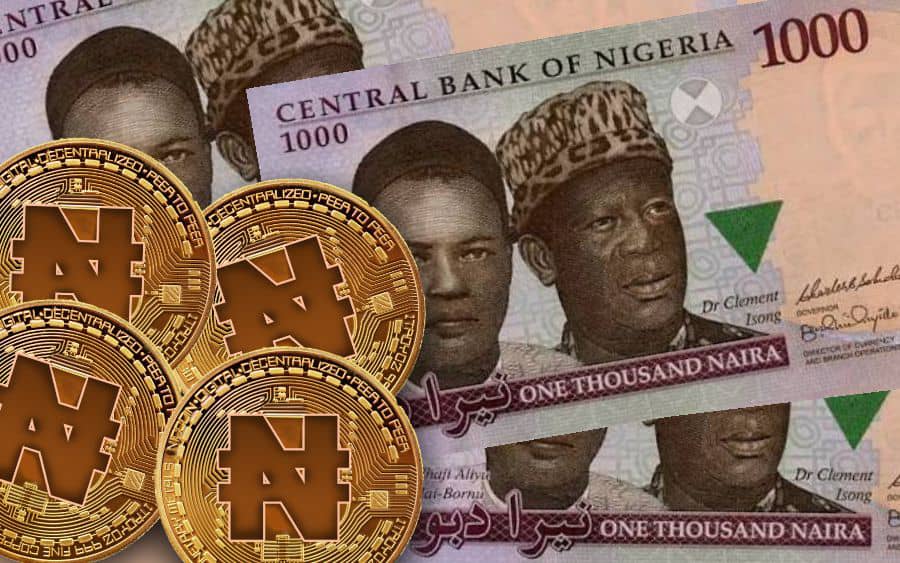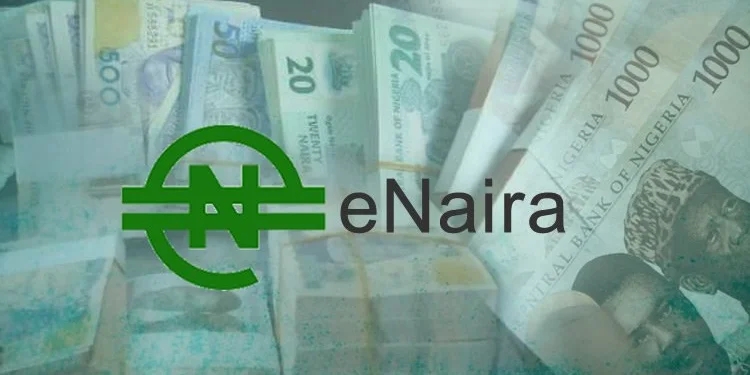The Central Bank of Nigeria (CBN) has stated that it plans to launch the pilot scheme of its Central Bank Digital Currency (CBDC) on Independence Day. This was mentioned at a press briefing delivered by Rakiya Mohammed, Director, IT Department at the CBN.
She stated that the apex bank has been conducting research in regard to central bank digital currencies since 2017 and may conduct a proof of concept before the end of this year.
The project name is tagged Project “GIANT” and a blockchain technology known as the Hyperledger Fabric Blockchain is being used. The CBN has also dubbed its CBDC ‘e-Naira.’
READ: CBN drafts guidelines to Nigerian banks on e-Naira
In a presentation to banks, as earlier reported by Nairametrics, the CBN gave insight into how the e-Naira would operate, noting that it will be a legal tender for the entire country and have non-interest-bearing CBDC status, a transaction limit for customers and a value-based transaction limit.
According to the presentation also, the CBN will issue its own wallet called the “Speed wallet,” but the wallet will not compete with existing banks. The CBN awaits the creation of “wallets” by banks and other innovators.
READ: Exclusive: Digital Currency partner, Bitt Inc to register in Nigeria, CBN to own stake
How to use the e-Naira
To use the e-Naira to transact, users will have to download the speed wallet, validate their account on the wallet by using either their phone number, National Identity Number (NIN) or Bank Verification Number (BVN). Once done, users can begin to use the wallet. According to the presentation, users will be able to send money using Peer-to-Peer (P2P) transactions through their wallets to other wallet holders, Person-to-Marchant/Business where e-Naira users can pay for items to merchants who have the e-Naira wallet and vice versa.
The presentation also shows how the Government Ministries, Departments and Agencies (MDAs) will be onboarded and use the e-Naira to do remittances to their staff and members of the public once there is mass adoption of the e-Naira and how citizens can make payment to MDAs using the e-Naira.
READ: How CBN’s e-Naira would affect Nigerians
Benefits of the e-Naira
Sean Stein Smith, a professor at the City University of New York, Lehman College, stated, “A CBDC issued and governed by a central bank or other governmental agency will help push the accounting and reporting conversation forward.
“Accounting might not make for splashy headlines, but in order for any crypto, and by extension blockchain, to achieve wider usage, accounting and reporting needs to be standardized.
“Looking at the tax issues linked to cryptocurrency alone highlights the need for standardized and consistent regulatory treatment that does not stifle further innovation.”
The e-Naira will also benefit as it will make governmental remittances easier. The case of the palliatives given during the lockdown last year, where many Nigerians did not receive theirs, can be solved if the government can easily remit money to its citizens. The e-Naira will also be able to better implement the CBN’s cashless policy.
Another point will be the reduction in the need for printing money in the long term. As more people adopt the CBDC as a means of payment, the need for paper currency will drop and the government can spend less on printing since they can easily issue new coins or e-Naira through the Hyperledger Fabric Blockchain. Data from the Central Bank of Nigeria‘s annual report, which was compiled by the currency operations department, shows the nation spent a total of ₦307 billion on printing banknotes between 2014 and 2019.
In addition, the cases of financial fraud can be easily tracked as the government will be able to monitor the flow of money in and around the country as it provides transparency and is difficult to counterfeit.
With the use-case explained let’s address the elephant in the room. Does Nigeria really need a CBDC?
The Nigerian banking system is one of the most sophisticated in the world and the banking system continues to advance its technological strength. In Nigeria, domestic intra bank transactions are done within seconds and at most minutes, a feat the United States was only able to achieve in 2017 through the creation of Zelle.
Before Zelle, fintech products like CashApp dominated instant transfers in the U.S. The U.S commercial banks took 2-3 days to transfer money between banks and when they realized a lot of users started adopting these fintech applications, they started integrating Zelle into their system to foster these instant payments between banks so as to meet up with the competition.
Asides from our technological strength, the average Nigerian transaction involves the use of four payment methods which are all instant; Point of Sale (POS) machine, Online Bank Transfer, USSD Code enabled transfers and fiat currency. The average Nigerian retailer accepts at least one of these payment methods when a transaction is about to take place. If the intent of the government is to reduce the use of paper money, the POS systems and online transfers can be encouraged through targeted campaigns, just like the cashless policy campaign in 2012.
Dipo Fatokun, CBN’s former Director of Banking and Payment System, defined financial inclusion as the access to financial services that are available to the adult population in any given economy. A major component of the e-Naira is the need for smartphones. This poses a problem because according to Pew Research Center, only 32% in Nigeria use smartphones. Nigeria’s population is 206 million people and this represents approximately 66 million people. Another report from the Guardian states that Nigeria has roughly 170 million mobile phone users based on subscriptions but only about 25 and 40 million users have smartphones which represent only 10-20% of the population.
Since the CBN’s mandate also includes financial inclusion, the proposed e-Naira limits the number of people within the country that can have access to a digital wallet, let alone, a CBDC.
Bottomline
Although one could make a case that the use of CBDC helps to better monitor illicit transactions within the country, but in the real world, a Nigerian CBDC will be too costly to implement and may be rendered useless quickly when compared to other systems that exist. The banking system is sophisticated enough to handle transactions as a means of payment. The central bank is better off spending its time and resources on pressing issues like how to combat double-digit inflation.
According to Olumide Adesina, a writer for CoinDesk, “The CBN aims for the CBDC to increase financial inclusion rapidly and easily. Creating and holding funds for citizens in a central bank account could offer better access to financial services for the unbanked or underbanked.
“However, some economists also believe the CBN can spend in deficit and shift funds directly to citizens without worrying about the national debt in times of economic hardship. In other words, a CBDC could present an obvious inflation risk.”
He further stated, “This would also enhance control over the level of access a Nigerian citizen has to a financial system, particularly if the citizen attempts to engage in behaviours considered to be a threat by the financial authority.”
















Actually CBN should concentrate on how to tackle the naira dollar issue, naira keeps on loosing against the dollar on a daily basis, instead of channeling there time and resources to e naira,I don’t think we really need it now
The CBN by this innovation will attract much needed diaspora remittances to Nigeria. I’M TO will now pay beneficiaries with eNaira and remit the underlying FX to CBN.
Let’s move on. Though, it won’t be easy at the beginning but, Nigerian citizens will adapt and surmount challenges that may surface.
However, we are ready to accept e-naira as a legal tender.
Overall I think it’s the right step, but CBN should have first looked at reducing lending rate. If well managed, the CBDC will be a blessing to us. Imagine saving billions in printing fiat money, then the ease of P2P, and easy payment system for govt establishments. But then there is a downside of losing phone or a case of kidnap and money will be drained easily from wallet.
We should fight for the devaluation of naira to dollar and not e-naira,i dont think it will slove any problem at all.
Federal Govt is just bent on gaining absolute control over everyone in Nigeria. This e- Naira project was never about strengthening Naira, Rather, FG wants to know who is doing what and why. People dont see it now, but they will soon.
It is not the work of cbn to upscale naira against dollar, but govt policy by retaining thr value chain . making available what we need do;lar for locally hence we will save ;ot of our forex and increase oir export
How will you expect me to invest in CBN e-naira when am not sure they understand crypto very wel, because if they do then they will never block crypto transactions in. Nigeria
Good morning. I want to high quality certificate
E-naira will work but might take a little time for people to understand the benefits.